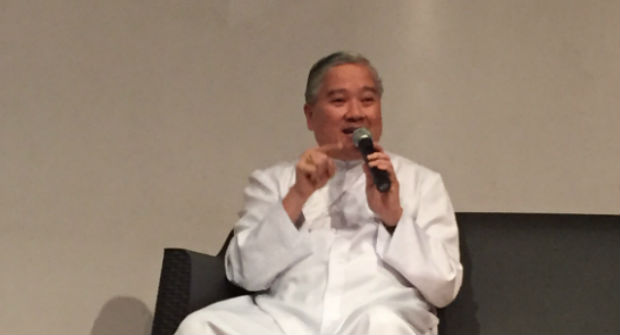Amid social movements seeking to legalize same-sex marriage, the Catholic Bishops’ Conference of the Philippines (CBCP) has urged politicians belonging to the fold to uphold Church teaching and “vigorously” oppose any legal recognition of such a union, saying that it is their moral duty to do so.
In a pastoral statement on Sunday, Lingayen-Dagupan Archbishop and CBCP president Socrates Villegas said the Congregation for the Doctrine of the Faith had declared that Catholic lawmakers had a moral duty to express their opposition publicly and to vote against any laws that would legalize homosexual unions.
Catholic lawmakers
“To vote in favor of a law so harmful to the common good is gravely immoral,” said Villegas, reiterating the teachings under the doctrine in yesterday’s pastoral response to the acceptance of the homosexual lifestyle and the legalization of same-sex unions.
The doctrine also dictates that in countries where legislation in favor of homosexual unions is already being implemented, Catholic lawmakers must try to obtain at least a partial repeal of the law if its total abolition is not possible, he said.
The senior prelate said that based on the catechism of the Catholic Church, sexual attraction towards the same sex is not a sin but is “objectively disordered” in light of its understanding of marriage.
‘Contrary to natural’
“Homosexual acts or practices that may arise from such attraction, although they may proceed from and be motivated by genuine affection between two persons of the same sex, are similarly not ordered to the union of the two persons and to the procreation of children,” said Villegas.
“Because they are not unitive and procreative… homosexual acts or practices are ‘contrary to the natural.’ Hence, they are, from the perspective of natural law, gravely disordered and considered ‘sins gravely contrary to chastity,’” he said.
Short catechism
In the pastoral statement, Villegas also said the CBCP would renew its efforts to reiterate Church teachings on the nature of creation and marriage amid social movements that seek to “normalize” homosexuality and legalize same-sex unions.
He said the bishops will be publishing a short catechism that will answer in simple language the most common questions and objections raised by critics of the Church’s position on marriage and homosexual unions.
He also offered guidance to the faithful in the face of the emerging social reality of homosexual unions as instructed in the Congregation for the Doctrine of the Faith.
Under the doctrine, Villegas noted, Catholics cannot participate in any way or even attend religious or legal ceremonies that celebrate or legitimize homosexual unions, especially in nations where same-sex unions are already accepted.
“Understandably, this will be a particularly heavy cross for families that have been touched by homosexuality. The Church reaches out with compassion to these families whose loved ones have entered into such unions,” he said.
Resist all attempts
In countries where homosexual unions have not been legalized, which includes the Philippines, the faithful are encouraged to resist all attempts to normalize homosexual behavior and unions in their culture.
“Catholics are called to oppose all gravely unjust laws that contravene both divine law and natural law—including all laws that legalize homosexual unions—because these unjust laws pervert and undermine the common good,” Villegas said.
But he added that Church teachings urge the faithful to be charitable to all homosexuals. Jocelyn R. Uy
